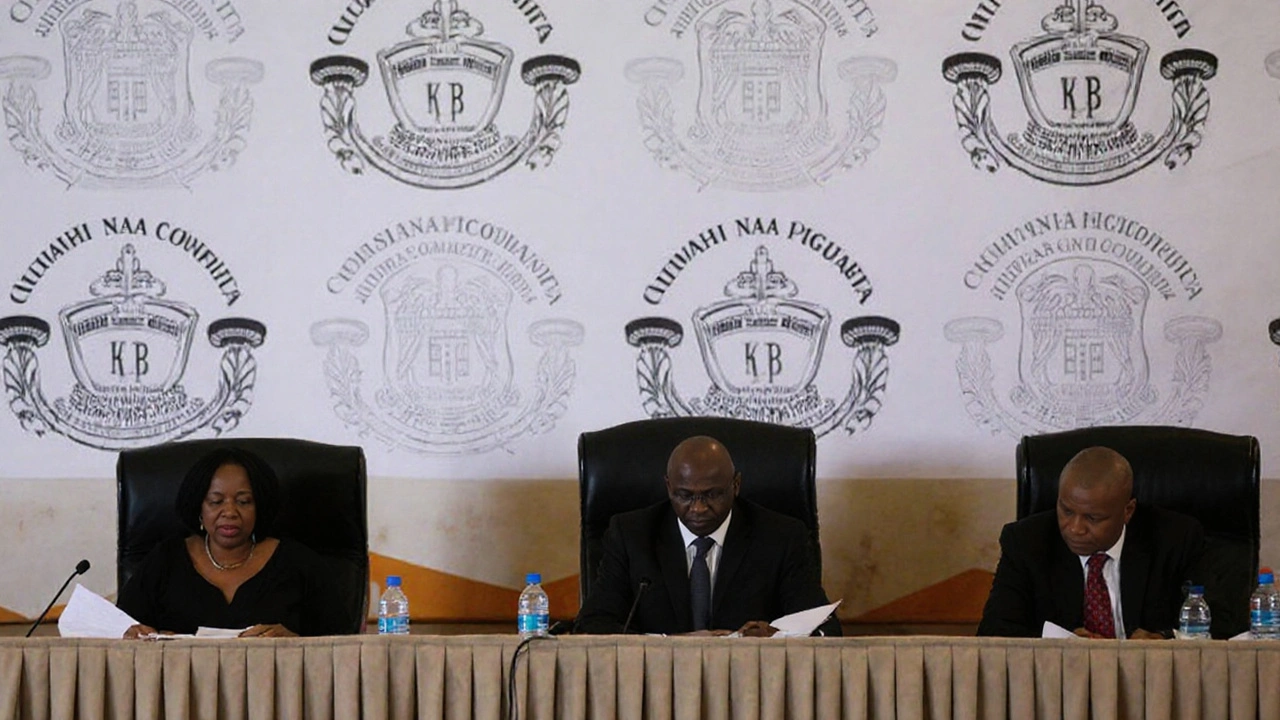Madlanga Commission: A Simple Guide
The Madlanga Commission has been in the news a lot lately, but many readers still ask: what exactly is it? In plain terms, it’s a public inquiry set up by the South African government to look into alleged irregularities in public procurement and contract award processes. The commission’s name comes from its chairperson, Judge Madlanga, who was appointed because of his reputation for fairness and legal expertise.
Why does this matter to you? Public procurement involves billions of rands that flow into schools, hospitals, and infrastructure projects. When those contracts are mishandled, ordinary citizens end up paying more for lower‑quality services. The commission’s work aims to expose any wrongdoing, hold officials accountable, and suggest reforms that protect taxpayers’ money.
Why the Commission Was Set Up
In early 2022, several high‑profile scandals rocked Gauteng’s health department – the most infamous being the R2 billion corruption case linked to Tembisa Hospital’s former CEO, Dr. Ashley Mthunzi. That case highlighted gaps in how contracts were awarded and monitored. Public outcry pushed the president to create a dedicated body that could investigate across ministries, not just one department.
The mandate is broad: review past contracts, interview whistle‑blowers, analyse procurement data, and recommend legal action where needed. Importantly, the commission operates independently, reporting directly to Parliament rather than any minister. This structure is meant to shield the inquiry from political pressure.
Key Findings and Ongoing Impact
So far, the Madlanga Commission has released three interim reports. The first confirmed that several procurement processes lacked competitive bidding, favouring a handful of firms with close ties to senior officials. The second report highlighted weak internal controls at provincial health departments, making it easy for inflated invoices to slip through. The most recent interim report pointed to a pattern of contract extensions without proper justification, a practice that cost the province an estimated R300 million.
These findings have sparked concrete actions. The Special Investigating Unit (SIU) has opened criminal investigations based on the commission’s evidence, and the National Treasury is drafting new procurement guidelines that tighten audit trails and enforce stricter penalties for non‑compliance. Some provinces have already started revamping their tender boards, introducing digital tracking systems to increase transparency.
For everyday South Africans, the commission’s work translates into better services and more confidence that public funds are being used wisely. It also serves as a warning to officials that misconduct will be uncovered and punished.
If you follow South African news, you’ll notice that stories about procurement scandals now frequently cite the Madlanga Commission’s reports. Whether it’s the ongoing fallout from the Tembisa Hospital case or new allegations in municipal infrastructure projects, the commission’s name has become a shorthand for accountability.
Looking ahead, the final report is expected by mid‑2025. It will include a full set of recommendations, ranging from legislative changes to a permanent oversight body that monitors procurement on an ongoing basis. Keeping an eye on those recommendations can help citizens engage with their local representatives and demand the implementation of reforms.
In short, the Madlanga Commission is more than just a headline; it’s a real effort to clean up a system that affects schools, hospitals, and roads across the country. By shining a light on past mistakes and pushing for stronger rules, the commission aims to make sure future contracts deliver value for every rand spent.

Madlanga Commission: Police Chief Mkhwanazi Blames MPs for Intelligence Abuse and Says Zondo Never Summoned Him
KwaZulu‑Natal Police Commissioner Nhlanhla Mkhwanazi testified for a second day before the Madlanga Commission, naming MPs for alleged misuse of crime intelligence and revealing he was never called to appear before the Zondo Commission. His statements touch on the disbandment of a provincial task team, ties to suspended minister Senzo Mchunu, and coordination gaps between police and prosecutors.